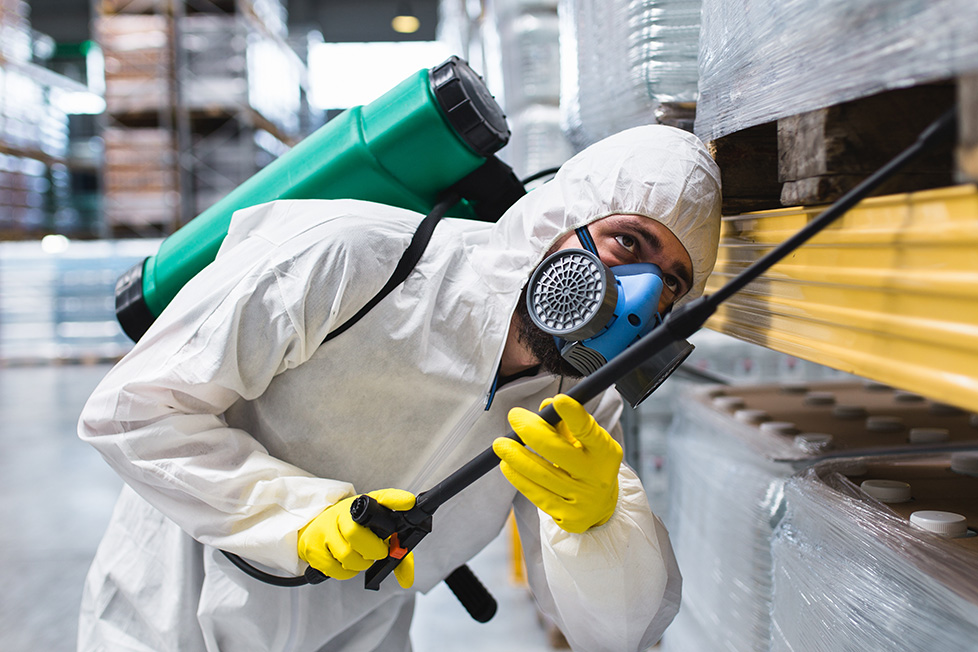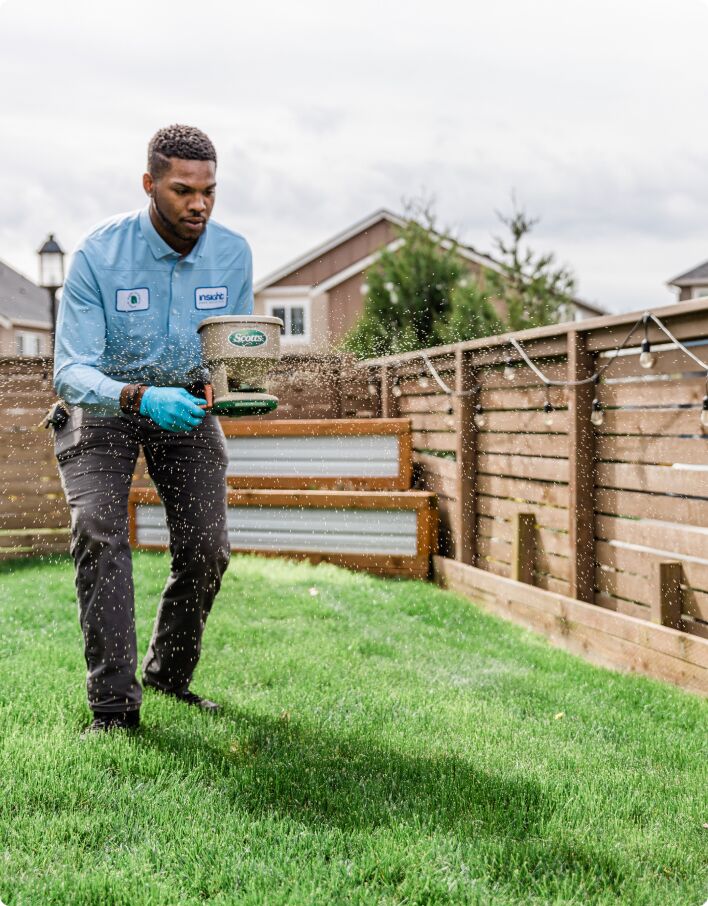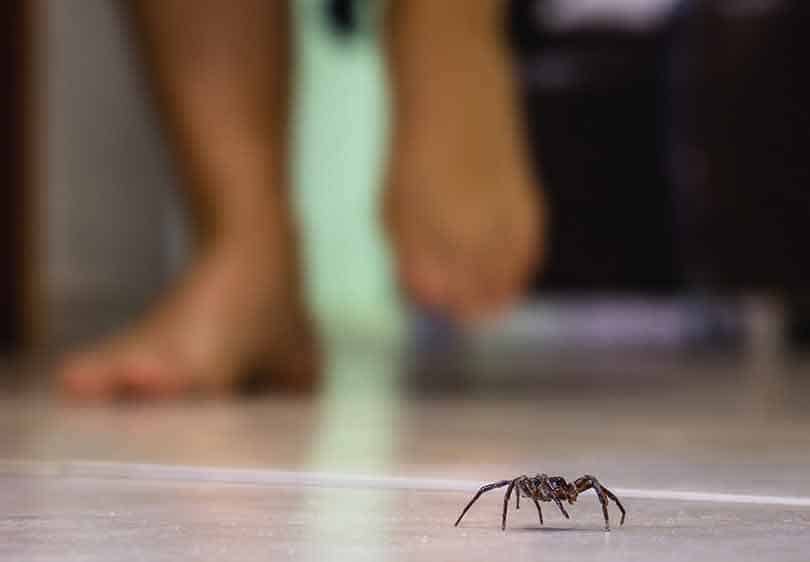Orem Pest Control Specialists: Safeguarding Your Building with Proven Approaches
Orem Pest Control Specialists: Safeguarding Your Building with Proven Approaches
Blog Article
An Insight Into Various Sorts Of Pest Control Services Available in the Market
In the realm of pest control solutions, a diverse array of approaches exists to attend to the consistent difficulty of taking care of undesirable trespassers. From standard chemical sprays to cutting-edge organic controls, the marketplace uses a spectrum of services created to fit various requirements and choices. As bugs continue to adjust and evolve, the requirement for effective and sustainable insect control procedures becomes increasingly paramount. Recognizing the nuances of each type of parasite control solution can be not only informing but additionally important for preserving an unified coexistence with the atmosphere and the animals that inhabit it.
Chemical Sprays
Chemical sprays are commonly utilized in pest control solutions to effectively eliminate and avoid invasions. These sprays consist of numerous chemicals that target details pests, such as termites, rodents, or bugs. The active ingredients in these sprays function by interrupting the bugs' nerves, creating paralysis or fatality upon call.
Expert insect control services employ experienced service technicians who recognize the proper application of chemical sprays to make certain optimum performance while decreasing threats to people, animals, and the environment. These technicians conduct thorough inspections to identify the sort of parasite problem and figure out the most ideal spray to attend to the issue.
One of the major advantages of using chemical sprays in parasite control is their capability to provide prompt results. Once used, the spray starts functioning swiftly, reducing the populace of bugs in a timely fashion. Additionally, chemical sprays can supply resilient protection versus future infestations when used consistently as part of a comprehensive parasite administration strategy.
Biological Control

Timeless biological control includes presenting all-natural adversaries of the insect types right into the setting. These all-natural enemies, such as bloodsuckers, killers, or pathogens, help control pest populations by exploiting or infecting them. This method is commonly used for lasting insect administration and developing a natural balance in the environment.
On the various other hand, augmentative biological control involves releasing large numbers of helpful organisms, such as predative pests or nematodes, to regulate existing pest populations. This method is a lot more instant and can be especially beneficial in farming settings to attend to existing parasite infestations.
Biological control methods are favored for their eco-friendly nature, very little effect on non-target species, and reduced chemical pesticide usage, making them a lasting bug management option for various sectors.
Catches and Lures

On the various other hand, lures are substances utilized to bring in parasites to a particular place for control objectives. Lures can be poisoned or non-poisoned, with poisoned baits being generally used for insects like cockroaches, rodents, and ants. Non-poisoned lures are often used along with traps to draw bugs right into the catch for capture. Correct positioning and option of lures and catches are crucial for their effectiveness, making them important tools in integrated insect administration methods. By recognizing the actions of the target parasite, parasite control specialists can properly make use of catches and lures to handle insect infestations efficiently - Orem Pest Control.
Integrated Insect Management
Integrated Insect Management (IPM) is a comprehensive strategy that incorporates numerous insect control techniques to properly take care of and get rid of insects while minimizing ecological effect. IPM focuses on long-term avoidance techniques by considering the biology and actions of bugs, in addition to the particular setting in which they exist. This technique integrates a selection of insect control strategies such as biological control, environment control, modification of social practices, and using immune crop selections.
One of the vital principles of IPM is to focus on non-chemical insect control approaches whenever possible. This might include utilizing all-natural predators to manage pest populaces or executing physical obstacles to stop problems. Chemical pesticides are utilized as a last option and are applied carefully to minimize damage to non-target microorganisms and the bordering environment.
Warmth Treatment
As a complementary method to Integrated Bug Management strategies, warm treatment is a targeted method that utilizes the power of heats to get rid of insects properly and efficiently. This technique is particularly helpful in getting rid link of bed pests, termites, and various other pests that may be hiding in hard-to-reach locations within a framework. By elevating the ambient temperature level to degrees that are lethal to the insects however risk-free for the structure, warm therapy can pass through splits, crevices, and furniture where traditional pesticides might not reach.
One of the essential advantages of warmth therapy is that it is chemical-free, making it a eco pleasant and risk-free option for pest control. In addition, warm treatment is known for its capacity to give quick results, often settling bug infestations in a solitary treatment session.
Conclusion

 Having actually attended to the efficacy of chemical sprays in pest control solutions, the focus now changes to biological control techniques as a sustainable alternative for taking care of bug infestations. Baits and catches are necessary tools in pest control solutions, providing targeted solutions for details bugs. By understanding the actions of the target bug, insect control professionals can successfully use lures and traps to take care of bug infestations successfully.
Having actually attended to the efficacy of chemical sprays in pest control solutions, the focus now changes to biological control techniques as a sustainable alternative for taking care of bug infestations. Baits and catches are necessary tools in pest control solutions, providing targeted solutions for details bugs. By understanding the actions of the target bug, insect control professionals can successfully use lures and traps to take care of bug infestations successfully.Integrated Insect Monitoring (IPM) is an extensive approach that integrates various parasite control techniques to effectively handle and eliminate pests while lessening ecological effect.In final thought, different kinds of insect control solutions are offered in the market to resolve different bug infestations.
Report this page